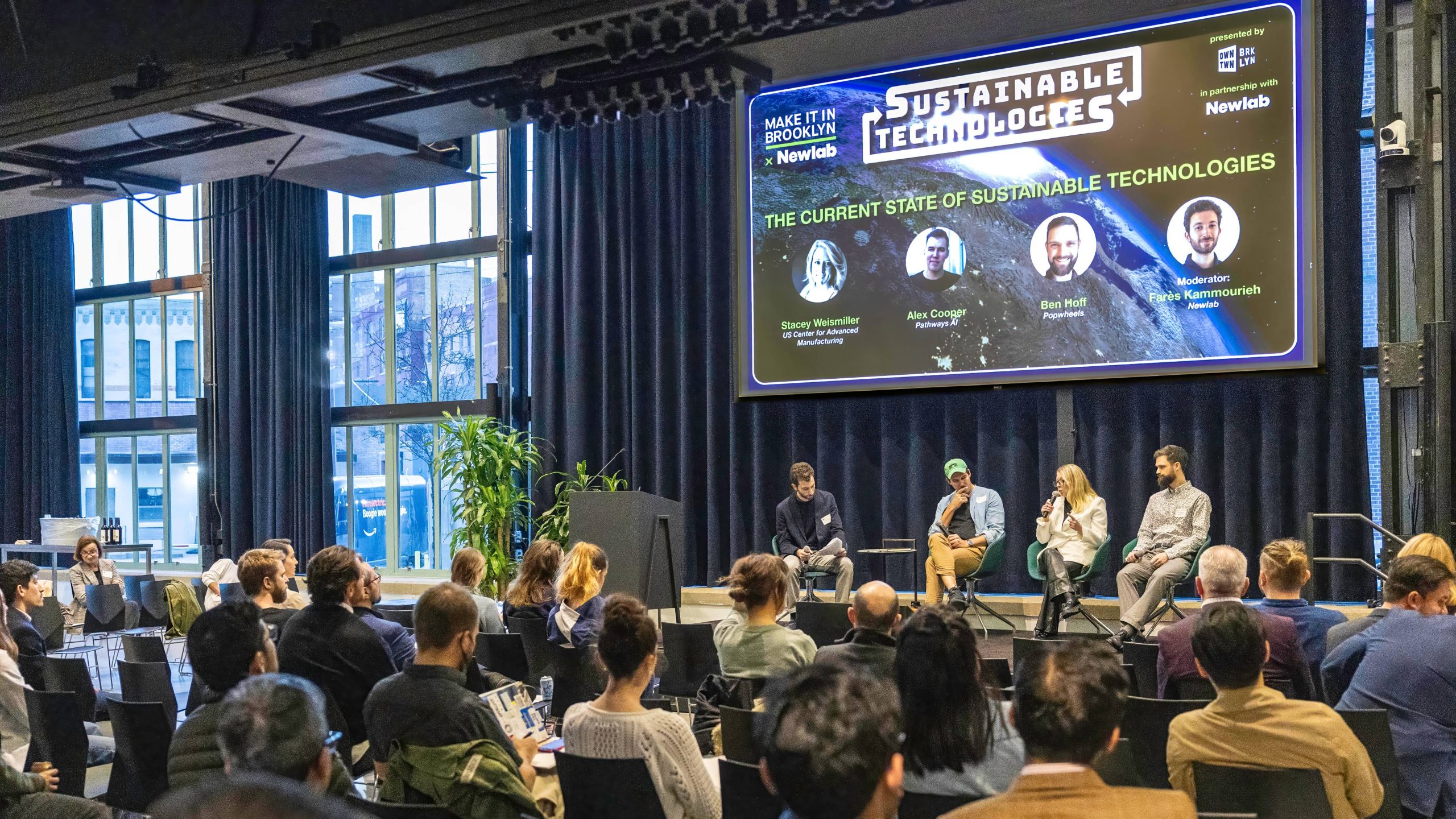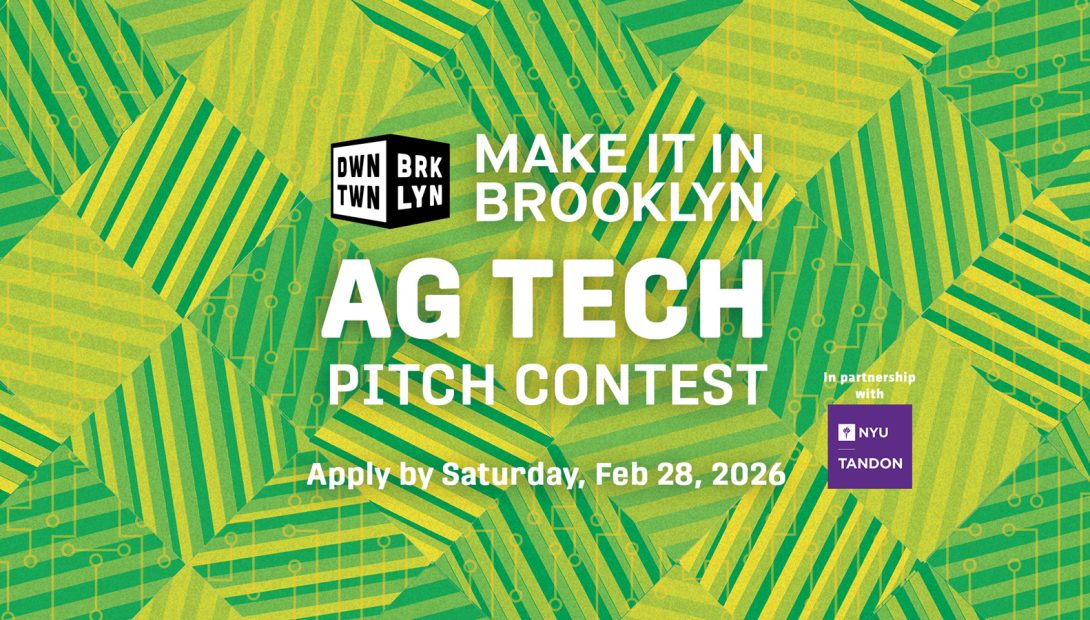Industry leaders gathered at the Newlab in The Brooklyn Navy Yard for an insightful discussion on sustainable technologies. The event featured two panels with experts from various sectors sharing their perspectives on implementation challenges, technology breakthroughs, and strategies for scaling sustainable solutions.
The Current State of Sustainable Technologies panel, moderated by Newlab’s Farès Kammourieh, brought together diverse expertise with Stacey Weismiller from the US Center for Advanced Manufacturing, Alex Cooper of Pathways AI, and Ben Hoff of Popwheels, who collectively explored practical challenges in adopting green technologies. Hoff offered insight into meeting customers where they are; explaining how Popwheels chose to use batteries despite being less sustainable because they had to prioritize customer needs and safety concerns. The conversation highlighted significant manufacturing hurdles in the US, with Hoff noting they manufacture battery cabinets in China not primarily for cost reasons but because “their engineers are better and the talent is there” – a point Weismiller connected to America’s pipeline problem in manufacturing.
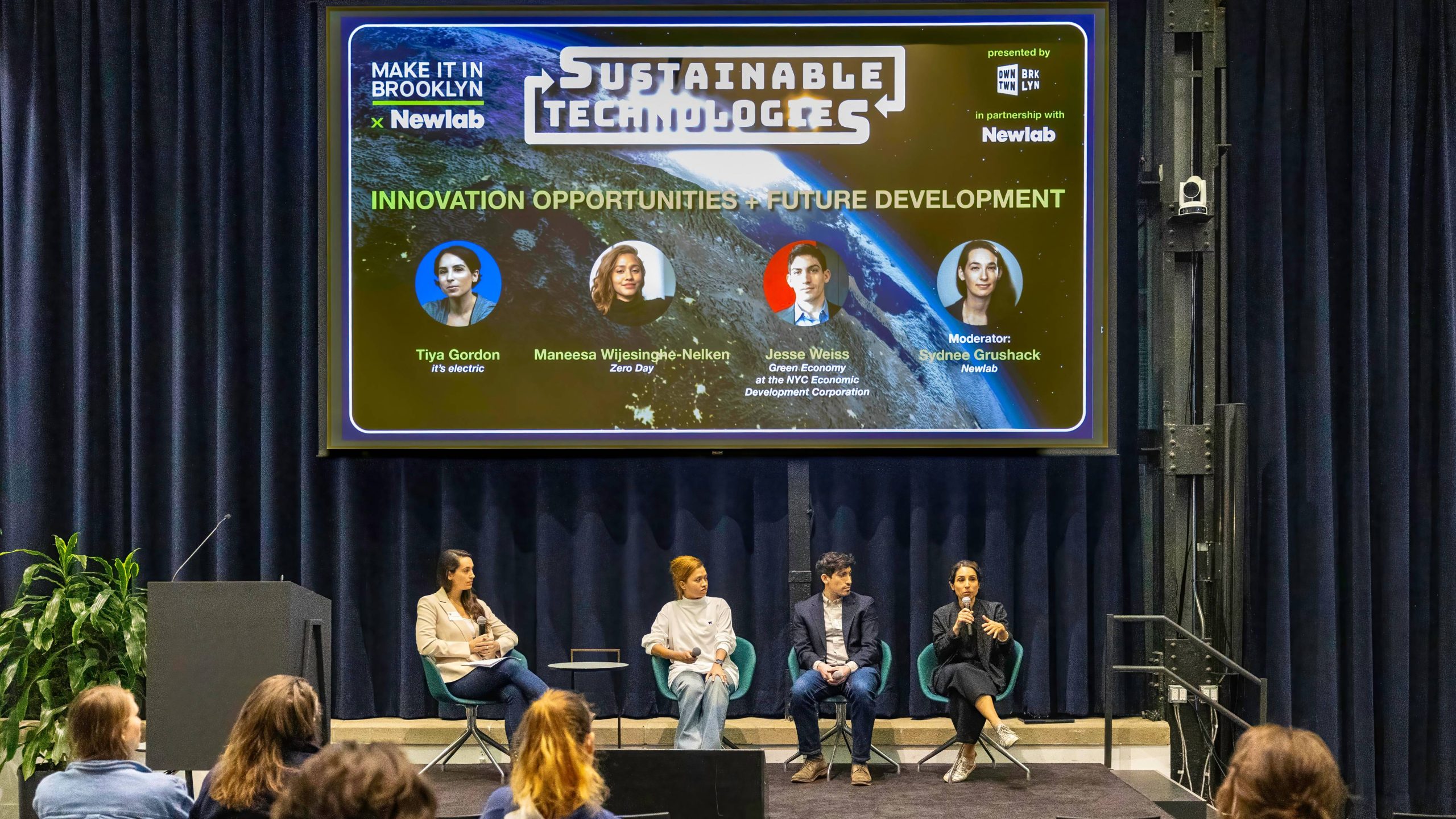
Left to right: Tiya Gordon, Manessa Wijesinghe-Nelken, Jesse Weiss, Sydnee Grushack
Economics emerged as the dominant force in technology adoption, with Hoff bluntly stating, “economics drive first and foremost and that’s the hard reality,” while Cooper emphasized the importance of understanding industry motivations when designing solutions. The panel concluded with Cooper showcasing how AI is transforming sustainability documentation, making previously expensive and time-consuming Environmental Product Declarations more accessible through automation technology.
The Innovation Opportunities & Future Development panel, moderated by Newlab’s Sydnee Grushack, brought together forward-thinking leaders Tiya Gordon of Its Electric, Maneesa Wijesinghe-Nelken Co-founder of Zero Day, and Jesse Weiss, Associate VP on the Green Economy team at NYC Economic Development Corporation, who shared groundbreaking approaches to sustainable urban solutions. Gordon detailed Its Electric’s ingenious method for urban EV charging that taps into existing building electrical capacity, explaining, “We’re putting a level two charger in, but instead of it sitting inside the building, we just run the conduit way below the sidewalk and it sits outside the building” – an approach that dramatically cuts installation costs compared to conventional utility connections. Wijesinghe-Nelken advocated for a paradigm shift in how we view food waste, describing Zero Day’s technology that compacts food scraps for biogas production and noting that biogas is “about to surpass wind power”.
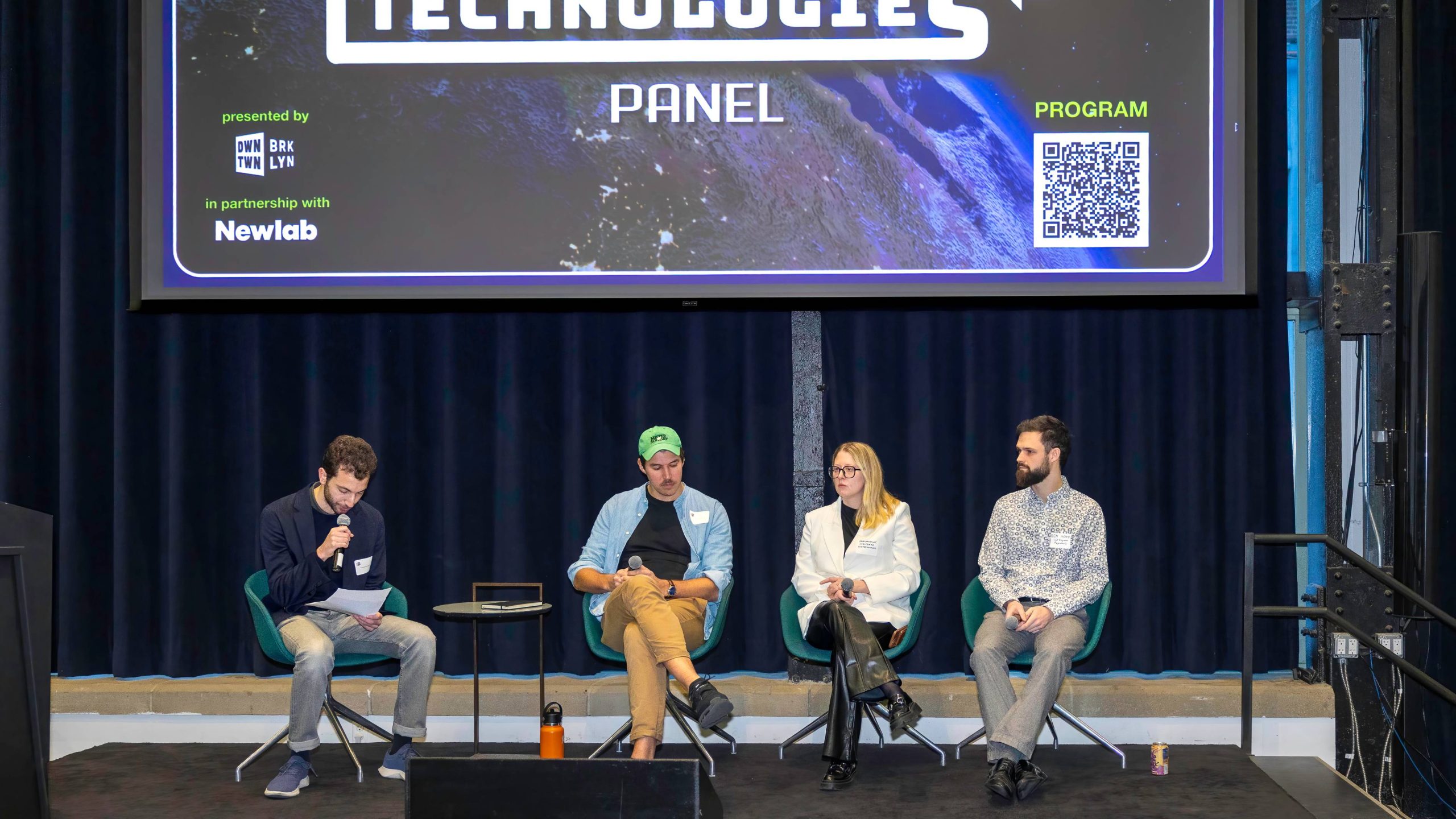
Left to right: Farès Kammourieh, Alex Cooper, Stacey Weismiller, Ben Hoff
NYC’s role as a sustainability innovation laboratory was highlighted. Weiss discussed the Climate Innovation Pilot, an EDC program which helps companies navigate complex regulations while providing valuable insights for policy reform. As he explained, “the short-term goal is to get projects through… but the larger goal really is policy reform.” All panelists acknowledged regulation’s double-edged nature in either constraining or enabling green technology adoption, with Wijesinghe-Nelken suggesting that “regulation and policy help to derisk something,” while Gordon emphasized the importance of engaging at state and local levels given federal policy uncertainties.
TAKEAWAYS
The discussions culminated in essential strategies for driving sustainable technology adoption in today’s complex landscape:
- economics must take precedence, with solutions delivering clear financial value to achieve widespread implementation;
- technologies need to meet users’ current needs and constraints rather than pursuing perfect sustainability at the expense of practicality;
- messaging should pivot toward concepts like “resilience,” “efficiency,” and “energy independence” which resonate more effectively than climate-focused language in the current political environment;
- close collaboration between startups, established industries, and government agencies is indispensable for successful deployment;
- regulatory frameworks must evolve to accommodate innovative technologies while maintaining rigorous safety standards;
- substantial investment in education is critical to develop the manufacturing expertise needed for domestic production capabilities.
These conversations ultimately emphasize the delicate balance required between environmental idealism and practical implementation, and the necessity of delivering immediate value to users and stakeholders across the economic spectrum while steadily advancing toward more sustainable systems and practices.
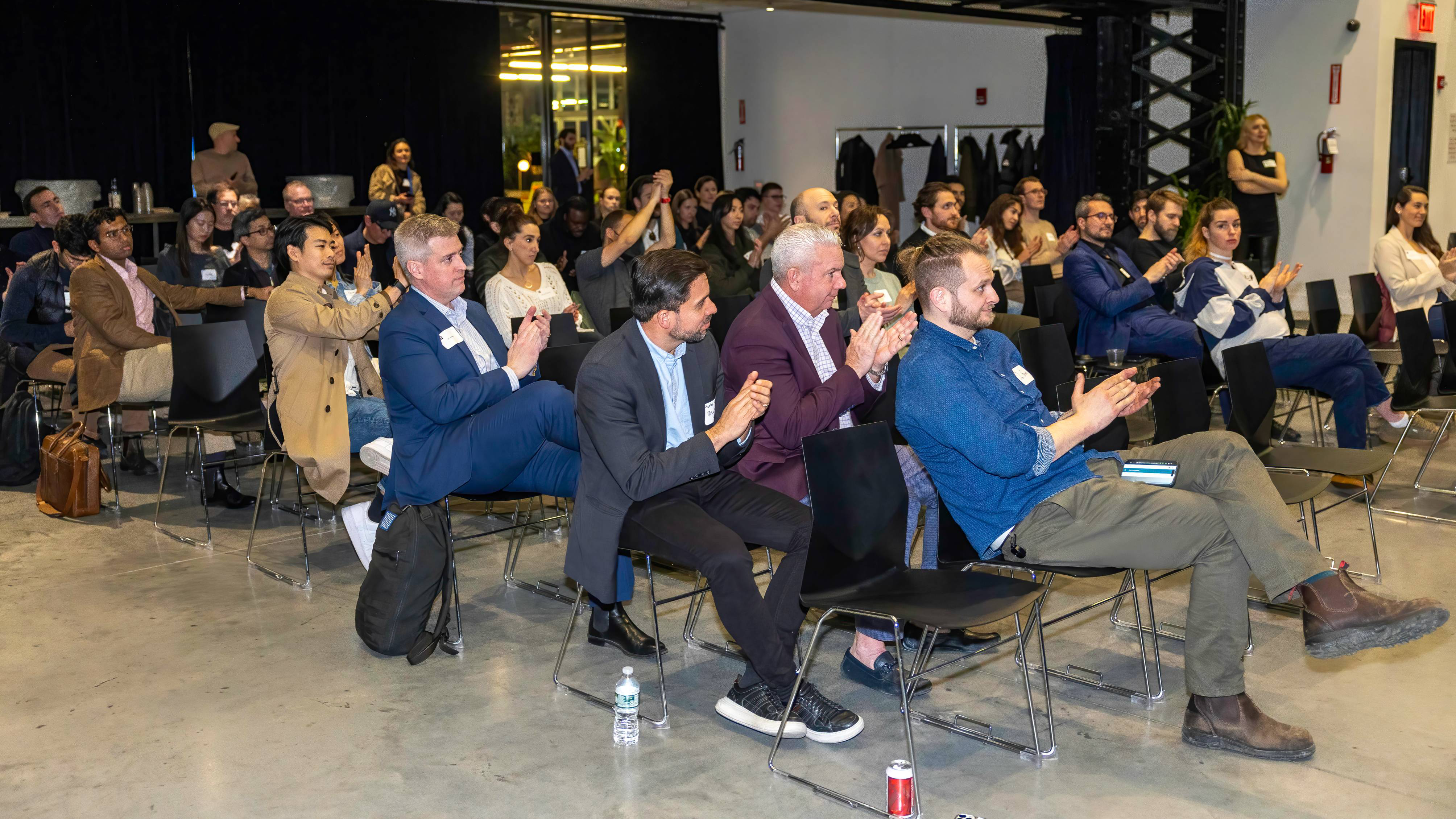
Make It in Brooklyn supports entrepreneurship and strengthens Brooklyn’s innovation ecosystem with its series of pitch contests, meetups, panels and more. These events have brought together hundreds of entrepreneurs across industries and have provided over $120,000 in seed money and pro-bono professional services.
